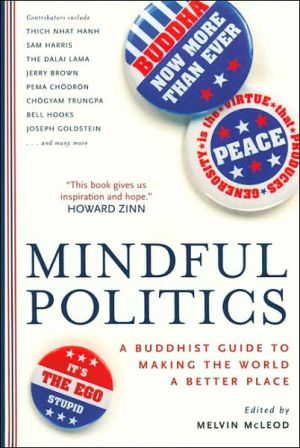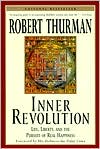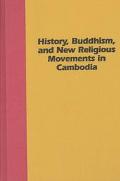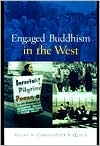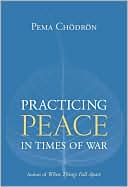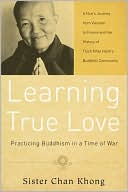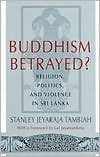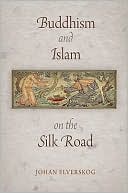Mindful Politics: A Buddhist Guide to Making the World a Better Place
Mindful Politics goes beyond right or left to get to the heart of what matters, and how anyone can participate in real political change. \ Mindful Politics is not your typical political book. It's now written at fever pitch, it doesn't employ the usual good versus bad binary, it doesn't get hung up on specific issues or policies, and it's not even specifically American. Instead, this timely book addresses the less discussed but more important aspects of politics, such as whether religion -...
Search in google:
Just in time for the crucial 2006 Congressional elections, Mindful Politics goes beyond right and left to get to the heart of what matters, and how everyone can participate in real political change. Mindful Politics is not a typical political book. It's not written at fever pitch, it doesn’t employ the usual good vs. bad binary, it doesn't get hung up on specific issues or policies, and it's not even specifically "American." Instead, this timely book addresses the less-discussed but more important aspects of politics, such as whether religion — any religion, including Buddhism — has something to offer politics. It also discusses how dealing with emotional issues can help the activist move beyond the particulars of legislation and policy, so that personal growth and effective advocacy can occur together. Noted editor Melvin McLeod offers a brief, contextualizing introduction for each of these essays. Publishers Weekly This collection of essays on a Buddhist approach to politics is far-ranging. We see contributions from Buddhists engaged in politics, whether religious figures like the Dalai Lama and Zen monk Thich Nhat Hanh or Zen student and political leader Jerry Brown, as well as a wide variety of Buddhist teachers and practitioners. McLeod, who edits two Buddhist periodicals and an annual anthology of Buddhist writing, skillfully organizes the diverse writings by using the categories that describe Buddhism's noble eightfold path. Contributions vary in quality. Nhat Hanh is clear as a Zen sitting-room bell; the precepts of his Order of Interbeing community are specific, and he can draw on decades of peace work to illustrate that what he says is not merely possible but has already been done. Scholar Rita Gross offers fresh insight about the anger of righteousness that often motivates political involvement. Other contributions are woolly or left over from the 1960s; bell hooks's use of leftisms ("imperialist white supremacist capitalist patriarchy") draws on stale ideology. Margaret Wheatley does important work in community and leadership development, but should avoid writing bad poetry to express her views. Despite unevenness, this anthology usefully disputes Buddhism's reputation as apolitical. Buddhism is quiet but not quietistic. (Aug.) Copyright 2006 Reed Business Information.
A new approach to global problems17Be peace embodied29Call me by my true names39Wego45Buddhism and the politics of domination57The Buddha's politics65Joining heaven and earth77Creating enlightened society89The discovery of basic goodness99Nowhere to spit105Three means to peace121We have the compassion and understanding necessary to heal the world129The power of patience141Giving and taking149The political precepts : the fourteen mindfulnesses of the order of interbeing159Beyond us and them165The path to forgiveness171The Buddha's advice on healing the community181Four freedoms189Agent in Indra's net201Gross national happiness213The wisdom in the anger225Taking whole : the art of less war239Letter to a dictator251No color, all colors261Compassion is our best protection273A Buddhist response to globalization285Killing the Buddha293Four truths & ten laws301
\ Publishers WeeklyThis collection of essays on a Buddhist approach to politics is far-ranging. We see contributions from Buddhists engaged in politics, whether religious figures like the Dalai Lama and Zen monk Thich Nhat Hanh or Zen student and political leader Jerry Brown, as well as a wide variety of Buddhist teachers and practitioners. McLeod, who edits two Buddhist periodicals and an annual anthology of Buddhist writing, skillfully organizes the diverse writings by using the categories that describe Buddhism's noble eightfold path. Contributions vary in quality. Nhat Hanh is clear as a Zen sitting-room bell; the precepts of his Order of Interbeing community are specific, and he can draw on decades of peace work to illustrate that what he says is not merely possible but has already been done. Scholar Rita Gross offers fresh insight about the anger of righteousness that often motivates political involvement. Other contributions are woolly or left over from the 1960s; bell hooks's use of leftisms ("imperialist white supremacist capitalist patriarchy") draws on stale ideology. Margaret Wheatley does important work in community and leadership development, but should avoid writing bad poetry to express her views. Despite unevenness, this anthology usefully disputes Buddhism's reputation as apolitical. Buddhism is quiet but not quietistic. (Aug.) Copyright 2006 Reed Business Information.\ \
